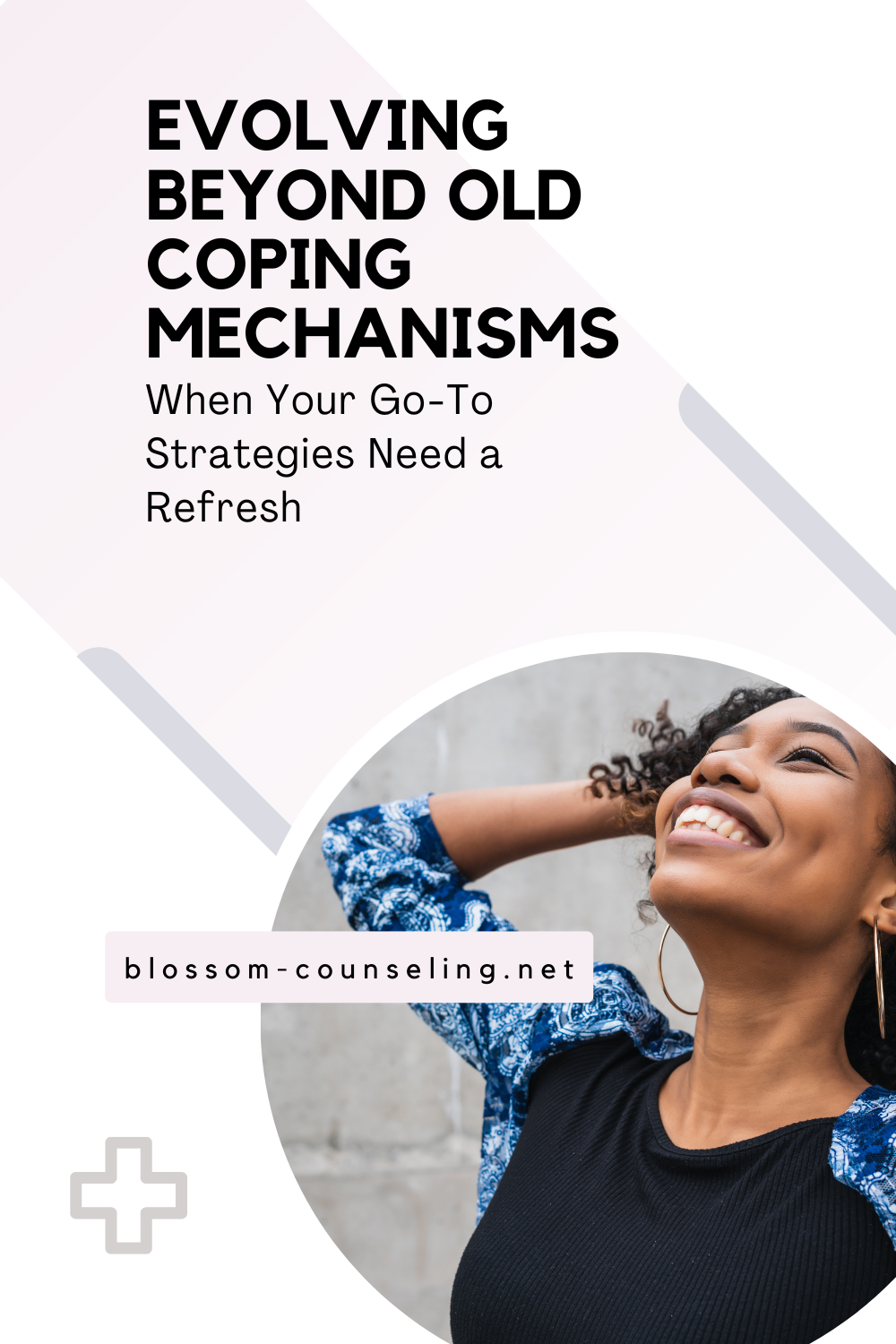
Everyone has their go-to methods for handling stress, anxiety, or sadness. Maybe it’s diving into a tub of ice cream, binge-watching your favorite series, or zoning out on social media. While these tactics might have worked wonders in the past, there comes a time when old coping mechanisms don’t quite cut it anymore. Recognizing and evolving from these outdated strategies is not just about self-improvement—it’s about survival and thriving in a world that constantly changes.
Why Do We Outgrow Coping Mechanisms?
Coping mechanisms are like software we develop to handle the world’s hardware—effective for a version or two but eventually in need of an update. As we grow and our lives become more complex, our initial ways of handling problems may become less effective or even detrimental. This growth can stem from a variety of life changes, such as new career roles, evolving relationships, or shifts in personal goals and values.
Signs That You’ve Outgrown Your Old Ways
Recognizing that a once-helpful coping mechanism has outlived its usefulness can be subtle. Here are a few signs that might indicate it’s time for a change:
- You feel worse, not better: If the aftermath of your go-to stress reliever consistently leaves you feeling guilty, anxious, or empty, it might be time to reassess its value.
- Your methods conflict with your goals: Perhaps procrastination used to be your way of coping with stress. But now, it clashes with your career or personal development goals.
- Increased dependence: Relying more frequently on a coping mechanism to get through daily stresses (like reaching for a glass of wine every night) can signal that it’s becoming less about coping and more about dependency.
Developing New, Healthier Mechanisms
The process of updating your coping strategies can feel daunting, but it’s also a profound opportunity for growth. Here’s how you can start:
- Mindfulness and reflection: Take time to reflect on what’s currently on your emotional plate. Mindfulness can help you understand your reactions and the effectiveness of your current coping strategies.
- Education: Learn about different coping mechanisms. Sometimes understanding the ‘why’ and ‘how’ can make new methods more accessible and appealing.
- Experimentation: Try out new strategies. Whether it’s journaling, physical activity, or engaging in a creative hobby, experimentation can help you find what genuinely soothes you.
- Professional guidance: Therapists can offer insights into why certain behaviors were adopted and help develop new strategies tailored to your unique situation.
Embracing Change
The idea of change can be intimidating, especially when it involves letting go of familiar habits. However, adapting your coping mechanisms is not about erasing the past; it’s about building a more resilient self who can face life’s challenges with a fresh set of tools. It’s okay to mourn the comfort of the old while making way for the new. Each step, no matter how small, is a step toward a healthier you.
In the evolution of your coping strategies, remember that setbacks are part of the process. Each day offers a new chance to practice, adjust, and refine how you meet your emotional and psychological needs. The goal isn’t to perfect new coping mechanisms immediately but to grow into them, allowing them to become as comfortable and effective as the ones they’re replacing.
Conclusion
Outgrowing old coping mechanisms is a natural part of life’s journey. It reflects personal growth and the ever-changing nature of our lives and challenges. By staying attuned to our needs and being open to change, we can ensure that our methods for managing stress and emotions evolve right alongside us. This isn’t just about surviving; it’s about thriving.




